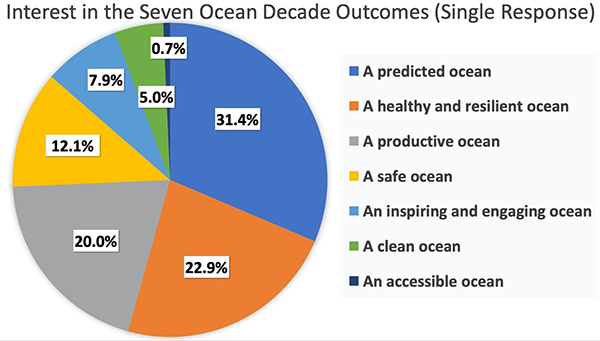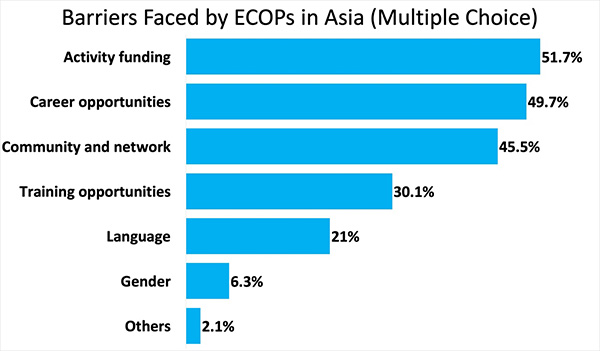Ocean Newsletter
No.536 December 5, 2022
-
Taking a Step towards Commercializing Marine Technology
SATO Toru (Chair, Ocean Technology Forum / Professor, Graduate School of Frontier Sciences, The University of Tokyo)
Against the background of efforts to achieve carbon neutrality and changing international circumstances, various marine sectors are expected to contribute to industrial development, regional revitalization, environmental protection, and boosting global competitiveness. However, many marine industrial technologies have yet to be commercialized. Therefore, at the Ocean Technology Forum, we gathered opinions from a wide range in industry, government, and academia, and compiled the 2022 (Reiwa 4) Ocean Technology Forum Proposals. In this article, I will introduce its content which covers individual issues in marine science and technology as well as ways for building an environment to meet these issues.
-
Searching for the Origins of Japanese People through the Analysis of Seafloor Sediments
KAWAHATA Hodaka (Visiting Professor, School of Creative Science and Engineering, Waseda University / Professor Emeritus, The University of Tokyo)
Seafloor sediments record past climatic and environmental conditions. Here, the authors have reconstructed the past environment experienced by the ancestors of Japanese people. This paleoclimatic/paleoenvironmental data was analyzed in conjunction with knowledge from anthropology, archaeology, history, sociology, and economics. Many of the major social events experienced by Japanese people’s ancestors were accompanied by extreme climatic events, and at present, we are in the midst of a "warming version of an extreme climatic event." In order to overcome this challenge, we must call upon the "wisdom" that Homo sapiens is known for and act accordingly.
-
The Role of Early Career Ocean Professionals in the United Nations Decade of Ocean Science for Sustainable Development
MORIOKA Yushi (Researcher, Application Laboratory, Research Institute for Value-Added-Information Generation (VAiG), Japan Agency for Marine-Earth Science and Technology (JAMSTEC))
The United Nations Decade of Ocean Science for Sustainable Development includes a program to promote activities by Early Career Ocean Professionals (ECOPs). The program is divided into four themes and regions, and this article will introduce ECOP-related initiatives in Asia and Japan. An awareness survey of ECOPs in Asia revealed challenges faced by them, including a lack of funding for activities and employment. Throughout this decade (2021-2030), a mechanism is needed to build networks of ECOPs, provide the information these professionals seek, and develop these young human resources who will support the future of the marine-related sector.
The Role of Early Career Ocean Professionals in the United Nations Decade of Ocean Science for Sustainable Development
[KEYWORDS] United Nations Decade of Ocean Science for Sustainable Development / Early Career Ocean Professionals / AsiaMORIOKA Yushi
Researcher, Application Laboratory, Research Institute for Value-Added-Information Generation (VAiG), Japan Agency for Marine-Earth Science and Technology (JAMSTEC)
The United Nations Decade of Ocean Science for Sustainable Development includes a program to promote activities by Early Career Ocean Professionals (ECOPs). The program is divided into four themes and regions, and this article will introduce ECOP-related initiatives in Asia and Japan. An awareness survey of ECOPs in Asia revealed challenges faced by them, including a lack of funding for activities and employment. Throughout this decade (2021-2030), a mechanism is needed to build networks of ECOPs, provide the information these professionals seek, and develop these young human resources who will support the future of the marine-related sector.
The United Nations Decade of Ocean Science for Sustainable Development and the Early Career Ocean Professionals (ECOP) Programme
The United Nations Decade of Ocean Science for Sustainable Development (hereinafter, the “Decade of Ocean Science”) is an international framework for the sustainable use and management of the oceans through ocean science. It aims to achieve the United Nations’ 2030 Agenda for Sustainable Development. Decade of Ocean Science-related efforts will be underway between 2021 to 2030 worldwide. Japan is also expected to contribute to these efforts. The Japan National Committee was officially established in February 2021, and examples of Japan's efforts toward the Decade of Ocean Science have been published on its website1.
The Decade of Ocean Science includes a program for ECOPs with less than ten years of professional experience. Evgeniia Kostianaia (Russia) oversees the ECOP programme, while Research Fellow Kotaro Tanaka (OPRI) and the author serve as coordinators of the ECOP programme in Japan (hereinafter, ECOP Japan). There is a network of about 50 ECOPs from around the world, divided across four themes and regions, who come together to make recommendations for the Decade of Ocean Science and disseminate information about it. For example, the diversity, equity, and inclusion (DEI) promotion team has been holding online workshops on these topics in the marine sector to include ECOPs from developing countries, island nations, and others where local participation is difficult for economic reasons. The ocean literacy team is organizing an ocean art contest for children worldwide, providing an opportunity to think with these youth about the ocean's role in the global environment and the challenges it faces. There are also teams that promote exchange among ECOPs from different fields, by dividing them among different marine issues such as marine plastics, and teams that train and mentor ECOPs.
ECOP Activities in Asia and Japan
Besides the four task teams, the ECOP programme has nodes (gatherings) that promote regional activities in areas such as Asia and Africa. The Asian nodes (ECOP Asia) aim to connect existing networks of multi-disciplinary ECOPs in their region, identify issues and needs faced by ECOPs, and provide information on human resource development, funding for activities, and employment. For example, ECOP Day, held online in June 2021, showcased the results of an awareness survey (as detailed below), and introduced the Asian ocean science community and NPO/NGO activities related to the Decade of Ocean Science. ECOP Asia also met with members of the Intergovernmental Oceanographic Commission (IOC) Sub-Commission for the Western Pacific (WESTPAC) in November 2021 to discuss human resources development for ECOPs in Asia and collaboration with stakeholders.
With these initiatives as a backdrop, a movement has begun in Japan to promote local activities by ECOPs. In January 2022, the Sasakawa Peace Foundation Ocean Policy Research Institute and the Japan Society of Ocean Policy organized the "ECOP Japan Symposium: Toward creating ECOP network in UN Decade of Ocean Science” held in Tokyo, Japan2. Japanese ECOPs working across various fields of marine science participated, introducing their activities and exchanging opinions. Common issues identified were the shortage of young professionals in marine-related fields and the importance of supporting students entering doctoral programs and seeking employment after graduation. It also became clear that a community of ECOPs in Japan is needed as a place where these professionals can interact across industry-academia-government boundaries and produce new innovations to meet various ocean-related challenges.
ECOP Awareness Survey in Asia
ECOP Asia surveyed ECOPs in seven Asian countries in May 2021 to explore their challenges and needs. Of the 145 respondents (of whom 42 were Japanese), about 60% were male, about three-quarters specialized in marine science, and about 60% were aware of the Decade of Ocean Science. They also showed great interest in the seven outcomes of the Decade of Ocean Science, which include predicted oceans, healthy and resilient oceans, and productive oceans, in that order (see left figure). However, there were differences in the levels of interest among ECOPs within Asia, with particular interest among Korean ECOPs towards a predicted ocean, Indonesian ECOPs towards a healthy and resilient ocean, and Japanese ECOPs towards a productive ocean.
The most significant barriers perceived by Asian ECOPs were, in order, a lack of funding for activities such as research, employment and a lack of career opportunities, and a lack of community and networking (see right figure). By country, results indicated that the lack of activity funding was the biggest barrier in both Indonesia and Japan, the lack of career opportunities was the greatest concern in India and the Republic of Korea, and the lack of community and networks was the most salient issue in China. In addition, the free responses revealed that language and cultural barriers, gender inequalities, and insufficient ECOP resources appeared to resonate with Japanese ECOPs.
These results were published as the “ECOP Asia Intermediary Report” on the ECOP website3 and introduced at international meetings related to the Decade of Ocean Science and other events. A similar survey was conducted in Africa, finding that ECOPs there face common challenges with Asian ECOPs (see “ECOP Africa Intermediary Report”). To meet the goals of the Decade of Ocean Science, a network of ECOPs should be established in each region and country to enable the exchange and provision of information.

 ■ Results of ECOP Asia Survey
■ Results of ECOP Asia Survey
Future ECOP Activities
Since the official launch of the ECOP programme in June 2021, ECOP enrollment has increased in countries and regions worldwide through the program’s various activities. The ECOP programme further works with the regional programs endorsed by the Decade of Ocean Science and supports ECOP activities related to these regional programs. For example, the East-West Center's Southeast Asian Ocean Professionals Program (EWCSEAOPP) has been performing research surveys and conservation activities in the highly biodiverse Coral Triangle (Pacific Coral Triangle)4 and along the Mekong River. In addition, EWCSEAOPP offers internships for young people and strives to develop human resources in the marine sector in Southeast Asia. The activities of these regional programs are highlighted by the ECOP programme, which holds exchanges and shares information among ECOPs in different areas. As more programs are approved through the Decade of Ocean Science, we expect to see more initiatives from ECOPs.
In Japan, ECOP Japan has been posting videos of the activities of Japanese ECOPs working across various fields on the ECOP website. It plans to provide useful information to ECOPs by organizing future events related to ECOPs in Japan. To ensure that activities among ECOPs are sustainable, it is essential to pass on the experiences and networks gained to younger generations and to revitalize communities of young professionals in the marine-related fields. Through these activities, I hope that ECOPs from different countries and regions will resonate with each other and increase in number while taking advantage of their diversity. (End)
- 1.https://oceandecade.jp/ja/
- 2.Event Report https://www.spf.org/opri/news/20220128.html
- 3.ECOP Website https://www.ecopdecade.org/
- 4.Waters spanning Indonesia, Malaysia, Papua New Guinea, the Philippines, the Solomon Islands, and East Timor
